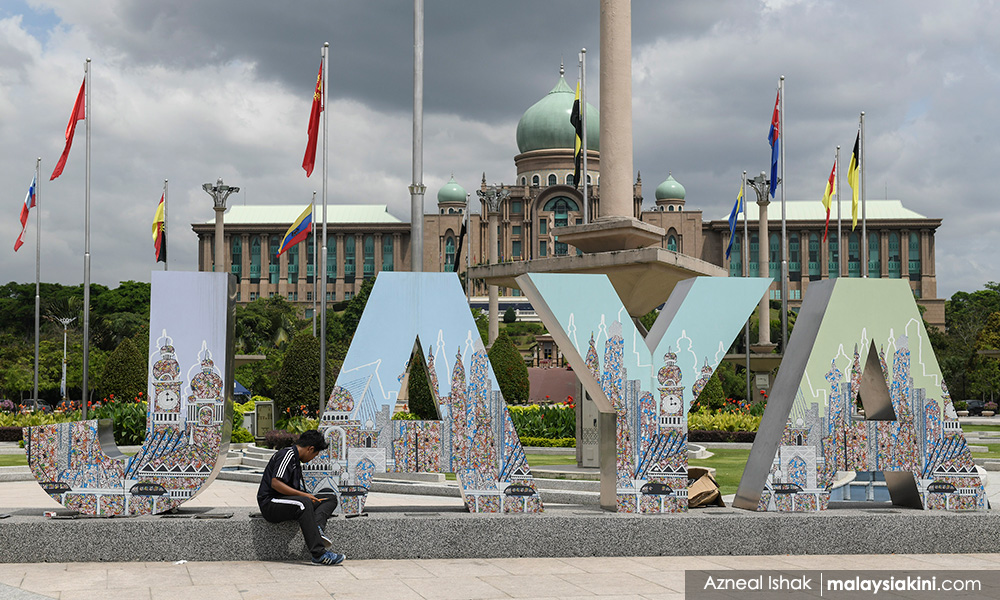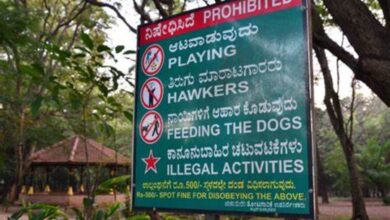What to expect as Malaysia’s split election leaves scramble to form govt?

What to expect as Malaysia’s split election leaves scramble to form govt?Anwar Ibrahim, a longtime leader of the opposition, and Muhyiddin Yassin, a former prime minister, each asserted that they could form a government with assistance from other parties, which they did not name.
Following an election that resulted in an unprecedented hung parliament, with no party able to claim a majority, Malaysia’s political leaders were scrambling to form a coalition government on Sunday.
Anwar Ibrahim, a longtime leader of the opposition, and Muhyiddin Yassin, a former prime minister, each asserted that they could form a government with assistance from other parties, which they did not name. Muhyiddin stated that although negotiations could go on for days, he hoped to wrap them up by Sunday afternoon.
What’s happening and what to anticipate are as follows:
WHAT OCCURED?
Although it fell short of the 112 seats required for a majority, Anwar’s multi-ethnic Pakatan Harapan coalition won 82 seats in the lower house, beating out Muhyiddin’s Perikatan Nasional coalition with 73 seats and Prime Minister Ismail Sabri Yaakob’s Barisan Nasional with 30.
Voters were more divided than expected by Muhyiddin’s alliance, which includes an Islamist party that has advocated sharia Islamic law for the Southeast Asian country.
It made gains in Barisan strongholds, where the United Malays National Organisation (UMNO), longtime leader of Malaysia’s political scene, had its worst performance ever.
THEN WHAT?
According to analysts, a coalition between Muhyiddin’s bloc, Barisan, and another group will most likely form the next government. However, if neither Anwar nor Muhyiddin can put together a majority, a minority government is still feasible.
On Sunday, Muhyiddin said he would discuss collaborations with regional parties in the states of Sabah and Sarawak on the island of Borneo. He previously stated that he is open to working with any party other than Anwar’s.
Anwar remained mum regarding his coworkers. He ruled out working with Muhyiddin’s and Ismail’s coalitions in a recent interview with Reuters, citing fundamental differences.
The coalitions of Muhyiddin and Ismail prioritize the needs of the ethnic-Malay majority, whereas Anwar’s coalition is multiracial. In Malaysia, where the majority are mostly Muslim Malays, with minorities of ethnic Chinese and Indians, racial and religious issues are contentious.
King’s Role
Potentially, King Al-Sultan Abdullah will choose the new prime minister.
Although the monarch’s role is largely ceremonial, the constitution gives him the authority to name a legislator who he believes can win a majority in parliament as prime minister.
Malaysian kings, whose position is held alternately by the sultans of the states, have rarely used this authority, but they have grown more powerful recently amid political wrangling.

When Mahathir Mohamad’s government disintegrated in 2020, King Al-Sultan chose Muhyiddin as prime minister after speaking with each of the 222 lawmakers to determine who had the support of the majority. He decided on Ismail when Muhyiddin’s bloc also fell apart.
Muhyiddin claimed on Sunday that the palace had given him instructions on how to form a government, but he did not specify what they were. Anwar promised to send the king a letter outlining his support.
IMPLICATIONS FOR MALAYSIA?
Malaysia, which has had three prime ministers in as many years due to power struggles, is likely to remain politically unstable.
The nation is adjusting to the UMNO’s and the Barisan coalition’s declining influence after 60 years of uninterrupted rule from independence to 2018.
The next coalition won’t have a strong majority and might experience more infighting, which would harm the economy.
Voters may reject a new government if it includes the losing parties as a result of their frustration with the unpredictability.
Two competing blocs compete to form the next Malaysian government.
Many Malaysians, who hoped for stability and unity after political turmoil that has seen three prime ministers since 2018 elections, were shocked by the unprecedented hung Parliament that resulted from Saturday’s divisive elections that saw the rise of Malay nationalists and threw the nation into a new crisis.

After closely contested general elections in Malaysia failed to produce a clear winner, the two biggest winners are competing Sunday to forge alliances to form a government, with the country’s king to be the final arbiter.
Many Malaysians, who hoped for stability and unity after political turmoil that has seen three prime ministers since 2018 elections, were shocked by the unprecedented hung Parliament that resulted from Saturday’s divisive elections that saw the rise of Malay nationalists and threw the nation into a new crisis.
With 73 out of 222 Parliamentary seats, the Malay-centric Perikatan Nasional, or National Alliance, led by former prime minister Muhyiddin Yassin, was an underdog that experienced an unexpected upswing in support.
The Pan-Malaysian Islamic Party, its staunchest ally, won the most seats in parliament, garnering 49, more than double the number it obtained in 2018. The rise of PAS, which advocates Sharia and currently controls three states, has raised concerns about further Islamization of the nation. With 82 federal seats, the reformist alliance of opposition leader Anwar Ibrahim won the race, but it was far short of the 112 required for a majority.
The United Malays National Organization-led alliance, which had ruled Malaysia since its independence from Britain until 2018, suffered the most. With many Malays choosing Muhyiddin’s bloc, which has positioned itself as a “caring, clean, and stable” alternative, it had its worst-ever performance, winning only 30 seats.
“Identity politics had been strengthened by this election. The newly formed coalition government will need to unify the country because no party has an absolute majority, according to Amir Fareed Rahim, director of strategy and public affairs at political risk consultancy KRA Group.
Many rural Malays, who make up two-thirds of Malaysia’s 33 million population and include sizable ethnic Chinese and Indian minorities, worry that greater pluralism under Anwar’s alliance will result in them losing their rights. This has helped Muhyiddin’s bloc, as has corruption within UMNO. Two-time former prime minister Mahathir Mohamad, who at 97 is in charge of a separate Malay movement, was one of the major election losers. He was shockingly defeated by the bloc of the National Alliance.

Anwar and Muhyiddin both asserted they had enough support to win a majority, but neither offered any specifics. Anwar stated at an earlier press conference on Sunday that he had received written support from lawmakers in order to secure a simple majority. He stated that King Sultan Abdullah Sultan Ahmad Shah, who will have the final say, must be consulted on this.
In Malaysia, the king’s role is largely ceremonial, but he names the prime minister he thinks will have the support of the majority of lawmakers.
“We have the majority,…” “More than 111 is majority,” Anwar said. A letter from the palace, according to Muhyiddin, suggested that his bloc might have been given preference to form a government over Anwar. Early on Sunday, he met with the head of the Borneo bloc and mentioned that talks were also being held with other groups.
God willing, it will be possible to establish the federal government soon, he wrote.
When Muhyiddin came to power in March 2020, the government disintegrated as a result of his decision to leave Anwar’s alliance and join the UMNO-led coalition. He left the partnership after 17 months due to internal strife.
The support of the two states on Borneo island, which won a total of 32 federal seats, is essential. A stable government can be formed with the help of UMNO, whose leader Ahmad Zahid Hamidi stated in a statement that his National Front alliance is willing to put aside differences. However, he did not provide any additional information.
After UMNO’s second crushing defeat in the polls, Zahid, who is defending himself against dozens of graft charges, is under pressure to step down.
Ismail Sabri Yaakob, the then-prime minister, announced early elections in October after caving to UMNO pressure. Despite a disorganized opposition, it anticipated a strong comeback, but the plan failed. Leaders of UMNO will meet later on Sunday to make their choice.




